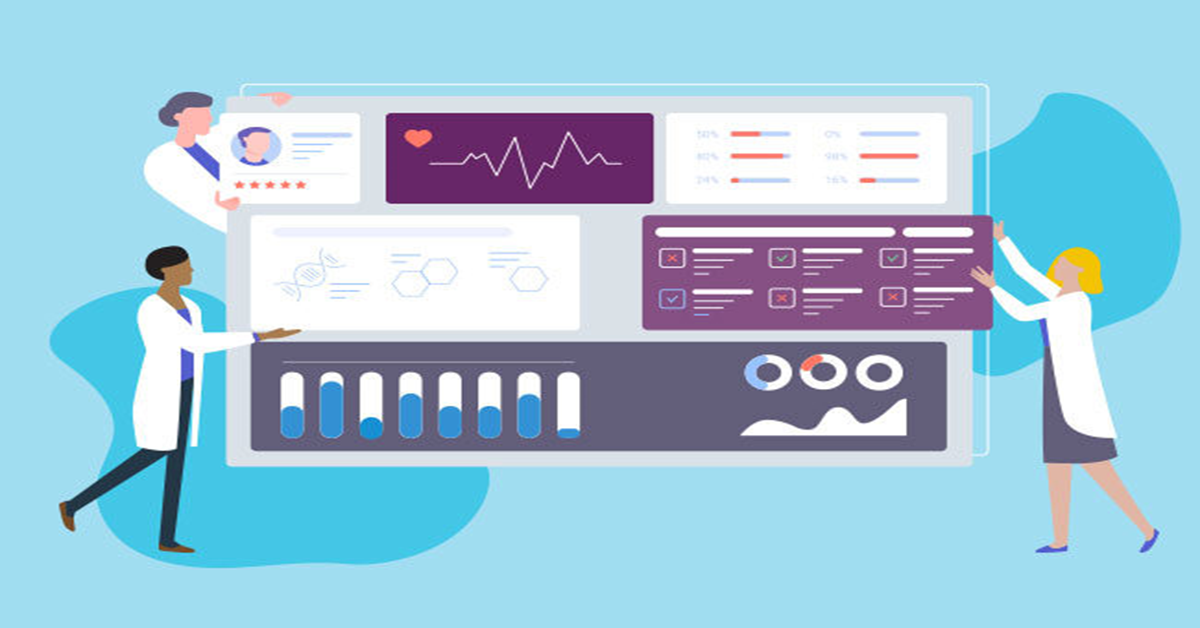Erica Isherwood is a registered nurse who recently started a new role as Lead Practitioner for Digital Technology at Southport & Ormskirk Hospital NHS Trust. Richard Cox is a registered nurse and Deputy Chief Nursing Informatics Officer at Manchester University NHS Foundation Trust. Here’s what they had to say…
Erica, what makes you excited about being a digital nurse?
I became a nurse to make a difference. Being a digital nurse means empowering and supporting clinical staff to deliver the best patient care with the help of digital technology. I feel like in this role I can have a big impact, improving lives for patients and staff. This is the future and it’s exciting to be part of it!
Richard, what do you feel are the benefits of digital nursing for people who receive care?
I’ve been involved in digital programmes throughout my career as a nurse, early on realising how technology can improve identification of a deteriorating patient and support teams, and the role of data in helping us continually improve patient pathways and the safety of patients. Digital technologies can really enhance how we all communicate as professionals, ensuring patient information is inter-connected so we understand more to meet their needs – this is very difficult if we solely rely on paper processes. This means our patients can have more meaningful interactions with us and become more informed and thus involved in their care, with the availability of patient portals and the NHS App. By being better connected, we’re able to deliver more person-centred, holistic care.
As nursing and midwifery professionals you work in high pressure environments. What would you say to those who think introducing new technologies adds to the already heavy workload?
Erica
Just try it, you will quickly change your mind! It improves workflow efficiency and reduces administrative burden, staff can access systems from different locations, enhanced safety checks are available and wave goodbye to illegible handwriting – what’s not to love!
Richard
As Digital Health Leaders it’s important we acknowledge these challenges. The close relationship the digital nurse plays with clinical services is imperative to support development of new safe and efficient ways of working. The digital nurse can also support a review of technology used, whether that is new ways of working or the type of devices required to support care.
Richard, you’ve recently welcomed your first student to the team – what do you want students to know about digital nursing?
I’m really proud of being a nurse and I think it’s really important for our future workforce to experience the breadth of nursing and the network of influence we have across health and social care to benefit patients. Digital is an incredibly exciting domain, it allows us to be at the forefront of change, collaborating with clinical colleagues to continually improve nursing practice and patient experience. By welcoming students into digital nursing teams, it allows individuals to understand the opportunities available to efficiently support their care delivery. It also helps them develop a deeper knowledge of digital workflows and data and its impact on patient care.
Erica, what role do you think digital nursing plays in the future of the nursing profession and the health and social care sector?
Digital nursing IS the future of the nursing profession and health and social care. We cannot continue as is – something has to change, and this is something we can change and implement together. Nurses play a vital role in digital transformation be it advising, communicating, educating or by being system users and adopting the new technology. If you have an idea or would like a new system in place, I encourage you to seek out support from your digital teams. Change starts with you!
Source:- NMC





